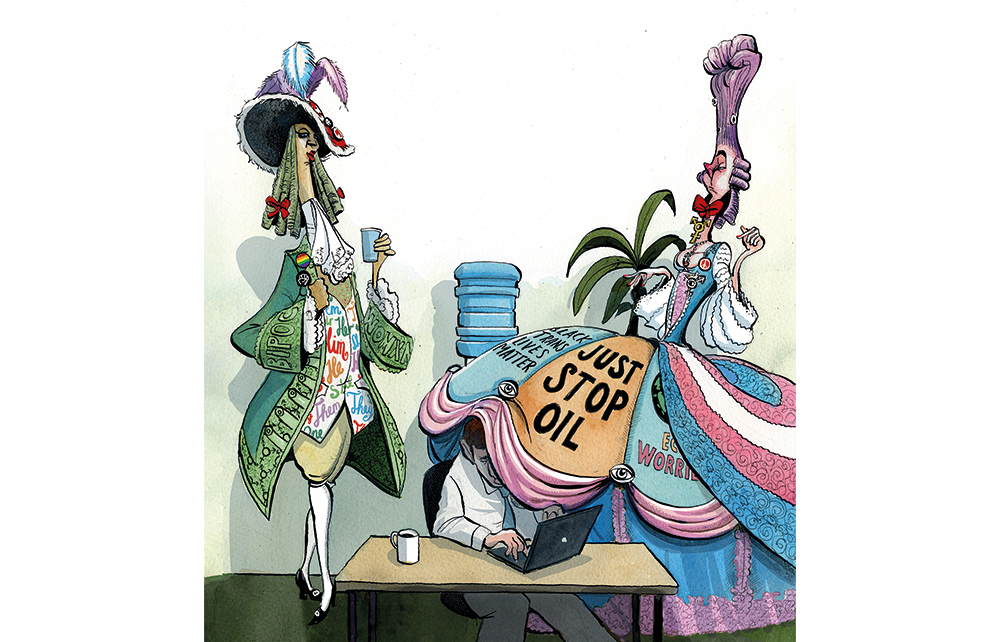In the pre-modern world positions in society were largely inherited. Some people were born with saddles on their backs and others booted and spurred to ride them – ‘The rich man in his castle / The poor man at his gate / God made them high or lowly / And ordered their estate’, in the words of the Victorian hymn. The meritocratic idea was the dynamite which blew up this view of the world and provided the materials for the modern era. But its reign is threatened as never before.
The 1960s and 1970s brought a wave of attacks on the meritocracy, starting with criticisms of the workings of the 11-plus exam and then broadening into denunciations of social hierarchy and social mobility. Egalitarians argued that meritocracy replaced a proper socialist idea – equality of results – with equality of opportunity. Radical activists argued in favour of collective rights (based on gender or skin colour) rather than equal opportunity for all based on ability.
Under the new hierarchy, the more oppressed groups that you belong to, the more moral virtue you possess
The first black studies department was founded at San Francisco State University in 1968 and the first women’s studies department in San Diego State University two years later. Michel Foucault and like-minded thinkers on the far left questioned every imaginable distinction – between the sane or the mad, the criminal and the non-criminal – on the grounds that they were expressions of the sinister workings of power.
The assault on the meritocracy paused for a while at the highest level of politics, though not before doing the immense damage of destroying grammar schools. Margaret Thatcher argued that the real engine of meritocracy is not the well-organised state but the market. Tony Blair embraced league tables and academic schools. But now we are confronted with a new wave of attacks on the meritocratic idea that is far more serious than the one that occurred in the 1960s.







Comments
Join the debate for just £1 a month
Be part of the conversation with other Spectator readers by getting your first three months for £3.
UNLOCK ACCESS Just £1 a monthAlready a subscriber? Log in